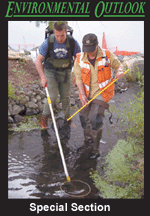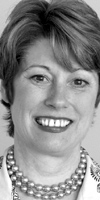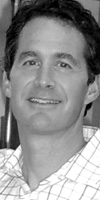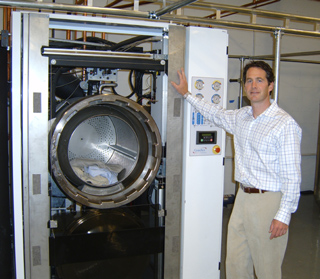
Surveys
DJC.COM
June 26, 2008
Seattle becomes a hotbed for clean technologies
Special to the Journal

Shannon
|

Callaghan
|
When we think of Seattle, two truths immediately come to mind: innovative and environmental. This combination makes our region well equipped to lead the United States not only in reducing our carbon footprint, but also in the creation of new eco-friendly products and businesses.
For today’s consumers, many of the products that allow us to lower our energy consumption are not developed or manufactured locally. The Prius hybrid car, for example, is designed in one part of the world, manufactured in another and assembled in still others. But a community such as Seattle, which has been committed beyond words to eco-friendly living, clearly has a competitive advantage in developing, launching and pursuing a greener future.
Government’s role

Photo courtesy of Joe Feese Blue Sky Cleaners owner Mark Callaghan will use CO2 dry cleaning machines like this one when he opens his Seattle plant this fall. |
Local government has an important role in helping to support this ethos. In a free-market society such as ours, new business development is a result of market need and government does not play a large role. When it comes to the welfare of our ecology, however, there are many states and countries that have instituted policies and incentives to support the development and use of clean technologies.
The sustainability of our environment and natural resources is a public matter. Nowhere is this more evident than in European countries, which were among the first to establish regulatory requirements for renewable energy products. These policies created the market for renewable energies so that emerging businesses could afford to make the private investment in new technology and infrastructure.
In Seattle, Mayor Nickels has made our community a recognized leader on the climate agenda. Policies he has introduced regarding green building, recycling and transit are strengthening our culture of innovation and environmentalism and will both improve our ecology and grow our economy.
Most recently, the mayor launched Seattle Climate Action Now, a program to give everyone in Seattle the tools needed to start making a real difference at home, at work and on the road.
We already know the power of community action here in Seattle when it comes to protecting our environment. We use less water today than we did in 1975, even though our population has grown by 25 percent. And, in 2005 Seattle recycled 44 percent of its waste, well on its way to a goal of 60 percent by 2012. Seattle Climate Action Now is meant to expand on these efforts by identifying additional day-to-day lifestyle changes that will improve our climate.
Little changes
Even in environmentally enlightened Seattle, there are probably a hundred little things we do every day, things we take for granted, that are harming our planet. One of those day-to-day activities is a visit to your local dry cleaner.
Nationwide, there are about 35,000 dry cleaners in operation — nearly every neighborhood has at least one. But what most consumers don’t know is that traditional dry cleaning uses perchloroethylene, commonly called PERC, a chemical that produces toxic waste, contaminates groundwater and is classified as a probable human carcinogen and toxic air contaminant by the EPA.
PERC has been the solvent of choice for traditional dry cleaners since the 1950s, and more than 80 percent of dry cleaners in the United States still use it. But because of the toxic waste it produces, dry cleaners are considered by many environmentalists to be on par with coal-tar plants and gas stations when it comes to site contamination.
A wave of recent legislation across the country, however, is laying the groundwork for a green dry-cleaning revolution. In January 2007, California enacted the first statewide ban of PERC in the nation. As of this year, the installation of new PERC machines is prohibited, and by 2023, no more dry-cleaning machines that use PERC will be permitted in California.
Massachusetts, Texas, New York and New Jersey are considering similar bans.
Promoting green
Fortunately, we live in a city that actively promotes and rewards the creation of green businesses. As a partner in the Seattle Climate Action Now program, Blue Sky Cleaners is about to introduce a paradigm shift in the dry cleaning process. Blue Sky will bring an entirely new, non-toxic dry cleaning option to the city.
Blue Sky will be Seattle’s first 100 percent toxin-free, liquid carbon dioxide dry cleaner. That dry-cleaning process uses naturally occurring and reclaimed CO2 as the cleaning solution. Under pressure, CO2 becomes an odorless liquid with unparalleled cleaning characteristics. CO2 cleaning is not only safe, but also rated by consumer studies as the best cleaning method available. CO2 will clean almost anything, from fine fabrics and sequined gowns to leather and down comforters, from bedding to handbags and hats — even teddy bears.
Because CO2 cleaning is toxin-free, it also provides a safe work environment. As an earth-friendly business, Blue Sky strives to be an all-around good corporate citizen, something the city of Seattle encourages through a number of innovative environmental incentives. Blue Sky uses cardboard hangers, which are made of 100 percent recycled paper, and biodegradable poly bags, which break down more quickly in compost and landfills.
With its innovative dry-cleaning methods and earth-friendly business practices, Blue Sky is redefining the industry, promoting sustainability and demonstrating that Seattle is a leader in innovation and environmental stewardship.
By choosing Seattle as its headquarters, Blue Sky further promotes Seattle’s green ethos and hopefully encourages other emerging clean technologies to locate here. After all, taking action to help change our behaviors and protect the climate for all of us and for future generations is the right thing to do — and doing the right thing is good for business.
Susan Shannon is director of the city of Seattle’s Office of Economic Development. Mark Callaghan is owner of Seattle-based Blue Sky Cleaners and a minority stakeholder in another CO2 cleaning business, Denver-based Revolution Cleaners.
Other Stories:
- Corporate social responsibility turns green
- A green approach to gold mining in the Okanogan
- Financing evolves to benefit the environment
- Homeowners rethink their waterfronts
- Will Earthships save the Earth?
- Municipalities discover the benefits of eco-roofs
- What lies ahead for sustainable design?
- Planning our communities for a low-carbon future
- City, tribe team up on clean water project
- Architectural firm sets a zero-energy goal
- New stormwater discharge challenges loom
- Green building’s future lies in innovation, conservation
- Speed up sustainable development with a planned-action EIS
- Avoiding fish-related construction delays
Copyright ©2009 Seattle Daily Journal and DJC.COM.
Comments? Questions? Contact us.